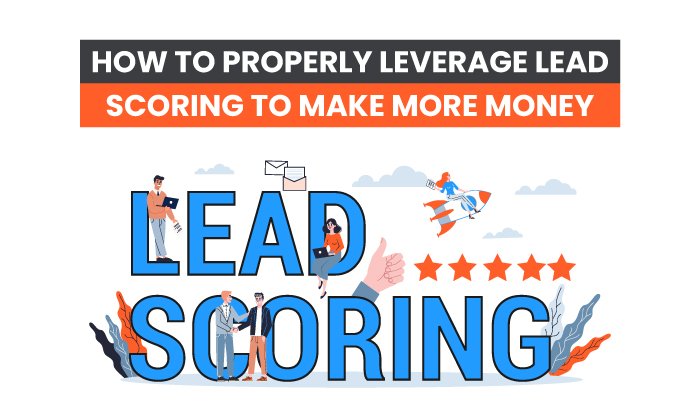Predictive Lead Scoring: What It Is and Why It's Important

By Sheryl Green
If your marketing team and the systems you have in place to attract leads are working properly, you’re likely seeing anywhere from 10s to 1,000s of new leads each week. If you’ve got a robust sales team, they may be able to contact every single lead within a few hours.
However, if you’re like most companies, your sales team has to prioritize in order to reach out to the “best” prospects quickly, while saving the “less likely” prospects for last. This doesn’t mean that they can’t be converted, there’s just a lower chance of securing those prospects as customers.
Time spent courting the wrong prospect is not only an exercise in futility, but it takes time away from your salespeople and prevents them from closing sales and making your company money. How then, do you make the job easier (and more lucrative) for your salespeople?
Predictive Lead Scoring can take the guesswork out of following up on leads. Let’s take a look at what it is and how it could help your business grow.
What is predictive lead scoring?
Before we define predictive lead scoring, it’s important to understand traditional lead scoring and its limitations.
Businesses have struggled with prioritizing lead follow-up for decades. In many cases, salespeople are left to their own devices, using their best judgment to decide who gets contacted first. Marketers and salespeople use data such as demographic info (age, marital status, industry, role), to rank potential customers as to how likely they are to buy. Those who rank high on this scale are contacted first, while others are contacted last, or if time doesn’t permit, not contacted at all.
The problem with this subjective process is that it’s … subjective. Salespeople are forced to rely on “gut feelings” and factor in their own historical experience to make this decision. Neither of these proves to be consistently accurate causing quality leads to slip through the cracks as they chase prospects unlikely to buy.
Predictive lead scoring is machine learning that takes this theory one step further by using predictive modeling algorithms to analyze data from past customers and current prospects to predict future outcomes. Put another way, predictive lead scoring has the ability to create an “ideal customer” profile based on past buying behavior, and then identify which current prospects best fit that profile. It removes the possibility for human error or bias and instead relies on hard data to make its predictions.
The Benefits of Predictive Lead Scoring
If your marketing and sales teams have been struggling with identifying top leads and are unable to follow up with everyone that enters your database, predictive lead scoring may be exactly what your company needs. With a multitude of benefits, it’s like hiring another department to assist in new customer acquisition.
The benefits of predictive lead scoring include:
1. Create Harmony Between Marketing and Sales
When there are so many leads coming in but not many sales being closed, these two departments may turn on …read more
Source:: HubSpot Blog








